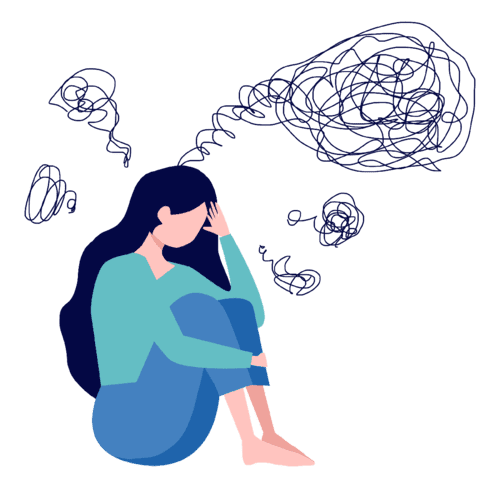Swallowing OCD Assessment
Free Swallowing OCD Assessment

What is Swallowing OCD Assessment?
Swallowing OCD, also known as “Swallowing Sensitivity,” is a subtype of Obsessive-Compulsive Disorder (OCD) where individuals develop obsessive fears and anxieties related to swallowing. These fears can manifest as concerns about choking, difficulty breathing, or fears of ingesting harmful substances. Individuals with this subtype often engage in compulsive behaviors such as chewing food excessively or avoiding certain foods. Assessment involves evaluating the severity of the obsessions, impact on daily life, and associated compulsive behaviors. A comprehensive assessment by a mental health professional is crucial for accurate diagnosis and to develop an appropriate treatment plan, often involving Exposure and Response Prevention (ERP) therapy.
Who can benefit from this Swallowing OCD Assessment?
The Swallowing OCD Assessment can benefit individuals who experience obsessive thoughts and compulsive behaviors related to swallowing. These individuals may have intrusive fears of choking, suffocation, or swallowing harmful objects. The assessment helps identify the severity and specific triggers of these obsessions, guiding appropriate interventions. It’s valuable for anyone seeking to understand their swallowing-related anxieties, whether for personal insight or to share with a mental health professional. This assessment aids in tailoring strategies like Exposure and Response Prevention (ERP) in Cognitive Behavioral Therapy, promoting a gradual reduction in compulsions and alleviating the distress associated with swallowing-related obsessions.
Swallowing OCD Assessment Accuracy
Assessing the accuracy of swallowing-related Obsessive-Compulsive Disorder (OCD) compulsions can be complex. Individuals may excessively focus on the fear of swallowing objects, leading to compulsive behaviors. While professional assessment is vital, it’s crucial to distinguish between genuine medical concerns and OCD-driven anxieties. Medical evaluations should guide decisions. Accurate assessment requires collaboration between mental health experts and medical professionals, ensuring effective treatment strategies that address both the psychological and physical aspects of the issue.
Types of Swallowing OCD Assessment
Clinical Interviews:
Mental health professionals, such as psychologists or psychiatrists, will conduct interviews to gather information about the individual’s symptoms, triggers, and overall functioning. This helps in diagnosing the specific subtype of OCD and tailoring the treatment approach.
Structured Clinical Interviews:
These are standardized interviews that follow a specific format and set of questions to assess symptoms and severity. Examples include the Yale-Brown Obsessive Compulsive Scale (Y-BOCS) and the Dimensional Obsessive Compulsive Scale (DOCS).
Self-Report Measures:
These are questionnaires that individuals fill out to provide information about their symptoms, thoughts, and behaviors. Examples include the Obsessive-Compulsive Inventory-Revised (OCI-R) and the Swallowing Distress Questionnaire.
Behavioral Assessments:
Professionals might observe the individual’s behaviors related to swallowing, such as checking behaviors or avoidance behaviors. This can provide insight into the impact of the obsessions and compulsions on daily life.
Functional Assessment:
This type of assessment aims to understand the function of the obsessions and compulsions in the person’s life. It explores how these behaviors help the person manage their anxiety or distress.
Medical Assessment:
It’s important to rule out any potential medical causes for the swallowing sensations or discomfort. A medical assessment by a physician or otolaryngologist (ear, nose, and throat specialist) may be necessary.
Handling Swallowing OCD issues
Swallowing OCD, also known as “Swallowing Anxiety” or “Sensorimotor OCD,” is a specific subtype of obsessive-compulsive disorder (OCD) where individuals become preoccupied with the act of swallowing. This can lead to heightened awareness of the swallowing process, discomfort, and excessive monitoring of the sensation.
Here are some strategies that might help you manage swallowing OCD issues:
- Therapy: Consider seeking therapy from a mental health professional who specializes in treating OCD, particularly Exposure and Response Prevention (ERP) therapy. ERP involves gradually exposing yourself to situations that trigger your anxiety (such as swallowing) and resisting the urge to perform compulsive behaviors related to it.
- Mindfulness and Acceptance: Practice mindfulness techniques to help you accept and tolerate the discomfort associated with swallowing sensations. Mindfulness can help you stay present in the moment without reacting to distressing thoughts.
- Educate Yourself: Learn more about the nature of OCD and how it can manifest in various forms. Understanding that your experience is a result of OCD can help you separate your thoughts from reality.
- Reduce Reassurance Seeking: Constantly seeking reassurance about your swallowing sensation can actually reinforce your anxiety. Try to gradually reduce the frequency of asking others for reassurance.
- Practice Delaying: When you feel the urge to swallow excessively, try delaying the action for a few seconds. Over time, this can help decrease the urgency of the compulsion.
- Mind-Body Techniques: Engage in relaxation exercises such as deep breathing, progressive muscle relaxation, or yoga. These techniques can help alleviate anxiety and reduce physical tension.
- Limit Checking: Avoid repeatedly checking your throat or mouth for reassurance. This checking behavior can feed into the obsessive cycle.
- Set Time Limits: Allow yourself a limited amount of time each day to focus on your swallowing sensations. When the time is up, consciously redirect your attention to other activities.
- Distraction: Engage in activities that fully occupy your attention and reduce the focus on swallowing. This could be hobbies, work, socializing, or anything else you enjoy.
- Journaling: Keep track of your thoughts, feelings, and behaviors related to swallowing. This can help you identify patterns and triggers, which can be useful in therapy.
- Healthy Lifestyle: Engaging in regular physical activity, maintaining a balanced diet, and getting enough sleep can positively impact your overall well-being and stress levels.
- Professional Support: Consulting with a therapist who specializes in OCD can provide personalized guidance and support tailored to your situation.
Remember that recovery from OCD takes time and effort. Be patient with yourself and recognize that progress might not always be linear. If your swallowing OCD is causing significant distress or interfering with your daily life, consider seeking professional help to address the issue more effectively.

